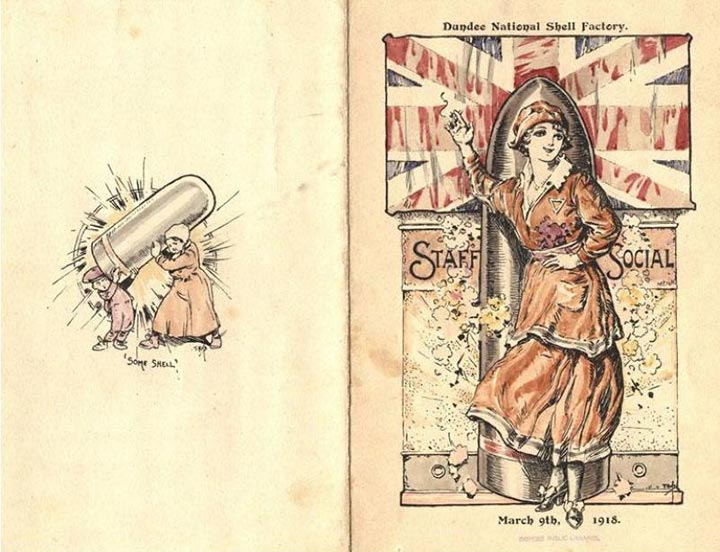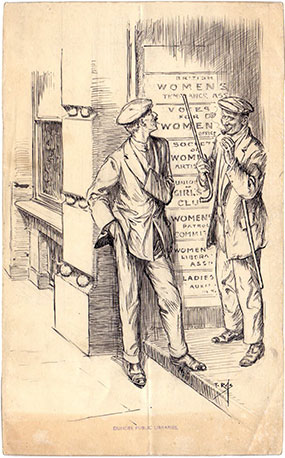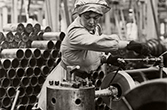Great War Dundee
This is Dundee's story of those that served in the First World War, and of the people left at home
Women on the Home Front
The Great War changed women’s lives forever. The war effort opened up employment opportunities to women in industries that had previously dominated by men.
Over half a million women entered factory work in the year from June 1915 alone. This arrival of women in heavy industry was a profound social change. Over 100,000 women also joined the Women’s Land Army. Men had typically worked as farm labourers to produce food and crops but as men enlisted, the workforce dwindled so women replaced men in the farms and fields.
Over 90,000 women worked in the munition factories during the war.
Thousands of women also took on dangerous work in munitions factories. These women were known as Munitionettes. The battle of Aubers Ridge in May 1915 had shown an alarming lack of shells and ammunition so women worked to produce the shells the armed forces needed.
Around 320 women were employed in the Dundee National Shell Factory which was located in Bowbridge Works part of jute mill owned by Grimmonds. The image below shows a cover to a four-page programme for a staff social evening for the factory and helps to illustrates the changing attitude toward women due to their contribution to the war effort during the First World War.

The number of women office workers also tripled and the Ministry of Labour advertised for girls aged 16-18 to enrol for clerical work with a salary of £1.
From 1917 women could join the Women’s Royal Naval Service (WRNS) and the Women’s Army Auxiliary Corps (WAAC). The Women’s Royal Air Force (WRAF) was formed the following year. Women were drivers, cooks, clerks and carried out whatever work was required. In total, over 100,000 women served in the military.
Meanwhile, women also busily supported those serving overseas. They sent home comforts such as chocolates and cigarettes. They also knitted and sent soldiers gloves, scarves, balaclavas and socks.

The joke handwritten on the reverse of the cartoon (right) by Dundee artist Tom Ross reads – Disabled Heroes in quest of Pension Office, “I say, Bill I doubt we’ve quite got into no man’s land.” By using the war term, “no man’s land”, to make the joke, the cartoon infers that women have taken advantage of men’s absence during the First World War to promote their various interests and activities.
Women finally won the right to vote in 1918. It is thought that their contributions to the war effort were largely responsible for this step forward in equality.
Picture credits: Social evening programme... and "I say, Bill I doubt we've..." courtesy of Dundee Central Library.

